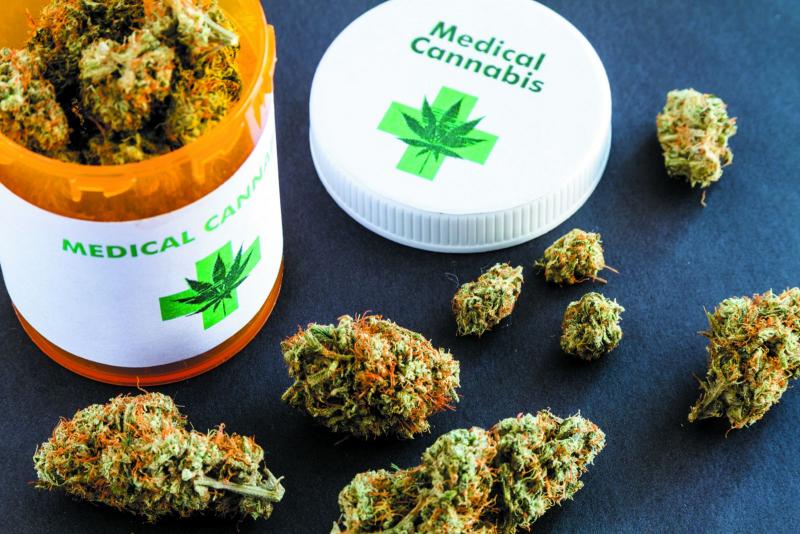
It is no secret that regulations reduce competition, limit innovation, and inflate prices, often establishing winners and losers. Economists have long noted that big businesses consistently benefit from government intervention in the market while consumers and small businesses are left to bear the high costs brought on by regulation.
Licensing limits are one such restriction that generates particularly damaging consequences. Capping the number of licenses allowed in an industry means that established players in that market face less competition from new businesses seeking to enter the industry.
As competition decreases, businesses lose incentive to innovative. With less competition and innovation, the quality of products will at best remain stagnant. More often, quality dwindles as companies can thrive in a regulated market without taking risks they would otherwise need to.
While the COVID-19 pandemic has ravaged Oklahoma’s economy, a free market approach to medical cannabis has enabled the industry to flourish. Unlike other states with legalized medicinal cannabis, Oklahoma has refrained from limiting the number of licenses issued for growers, processors, distributors, and transporters.
This hands-off approach has led to the creation of 6,000 new jobs in the cannabis industry in 2020, astonishing growth in a year where over 150,000 Oklahomans lost their jobs and a record number filed for unemployment benefits.
Amidst this prosperity, lawmakers in Oklahoma City considered impsong licensing caps and severe regulatory restrictions on medical marijuana, directly contradicting the intent of the hundreds of thousands of Oklahomans who voted in favor of State Question 788, the ballot initiative that legalized medical marijuana.
Passed in June, 2018 with over 56% of the vote, SQ 778 directed lawmakers and regulatory agencies to create a free enterprise system of growing, processing, and distributing medical cannabis. The ballot initiative included a $2500 licensing fee for businesses, a low barrier of entry for medical marijuana, and didn’t limit the number of permitted licenses.
Since its legalization, medicinal cannabis has been an overwhelming success for Oklahoma. Dispensaries totaled over $830 million in revenue in 2020, more than doubling last year’s revenue, with additional growth expected in 2021. State and local governments have benefitted as well, raking in $71.6 million in tax revenue, a 134% increase from 2019.
This free-market approach has strong support from residents, as more than 100,000 Oklahomans signed a petition supporting full deregulation of the industry in response to previous efforts to restrict entrepreneurial participation.
HB 2272 was the most recent push to restrict medicinal cannabis, including numerous provisions that would have devastated businesses, cut jobs, and subverted the clear will of voters in Oklahoma. This bill sought to replace the $2500 licensing fee with a complex lottery system. Tickets for the lottery would be sold to those able to pay the exorbitant price determined by a group of unelected officials at the Oklahoma Medical Marijuana Authority (OMMA). While a previous version of HB 2272 listed the price of a lottery ticket at $12,500, the final price, at the complete discretion of OMMA, could be significantly higher.
The proposed legislation would impede aspiring entrepreneurs from entering the market. With no guarantee of a license, they would be forced to take on more debt or surrender portions of their business to equity investors just to purchase a lottery ticket.
HB 2272 also looked to invoke a moratorium on new licenses, effective September 1st, and required licensed establishments to meet arbitrary commerce quotas to avoid losing their license. For dispensaries in remote areas of the state, commerce quotas would be impossible to meet, a cruel and unjust death sentence for countless dispensaries and thousands of well-paying jobs.
House Majority Leader Josh West, the sponsor of the bill, incorrectly claims that HB 2272 will “combat the black market”. Medical marijuana’s black market exists due to high taxes and strict regulations imposed by government. When deregulated, those who utilize the black market are no longer incentivized to circumvent legal practices, reducing black market activity. Regulatory provisions, like those included in HB 2272, lead to price inflation, enlarging the black market, diminishing state tax revenue, and driving many out of business.
HB 2272’s licensing caps were fortunately rejected by the Oklahoma Senate. Republican Senator Casey Murdock introduced an amendment eliminating the licensing cap proposal, ensuring that the state’s economic success in medicinal cannabis will not be abandoned by lawmakers this legislative session. However, it is expected that the licensing cap proposals in HB 2272 will be reintroduced in the future. Constant vigilance may therefore be required to prevent overzealous legislators from passing anti-growth initiatives targeting medical cannabis.
It is clear that Oklahoma’s success in medical marijuana is a direct result of free-market policies. Lawmakers in Oklahoma City should encourage competition, innovation, and free enterprise rather than caps on licenses and other restrictions that harm businesses, consumers, and the entire state. Such policies have worked incredibly well thus far, it would be irresponsible to discard them now.

